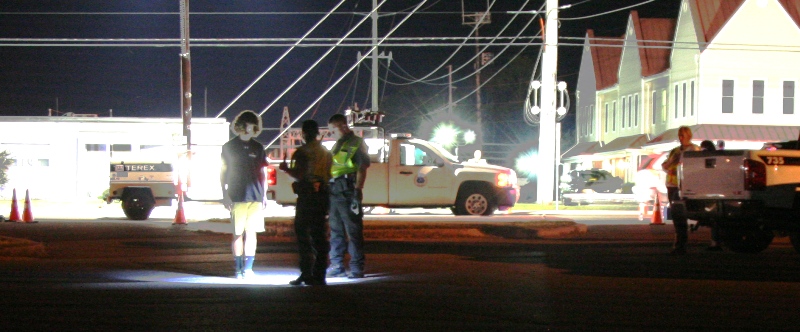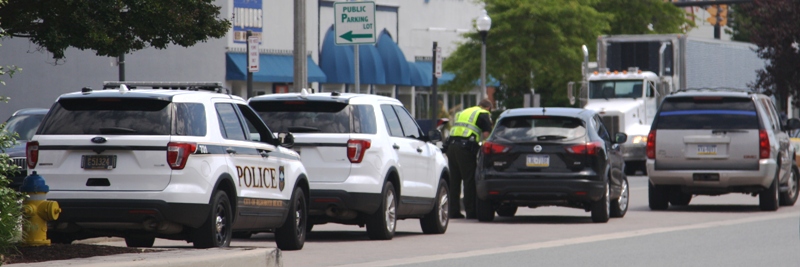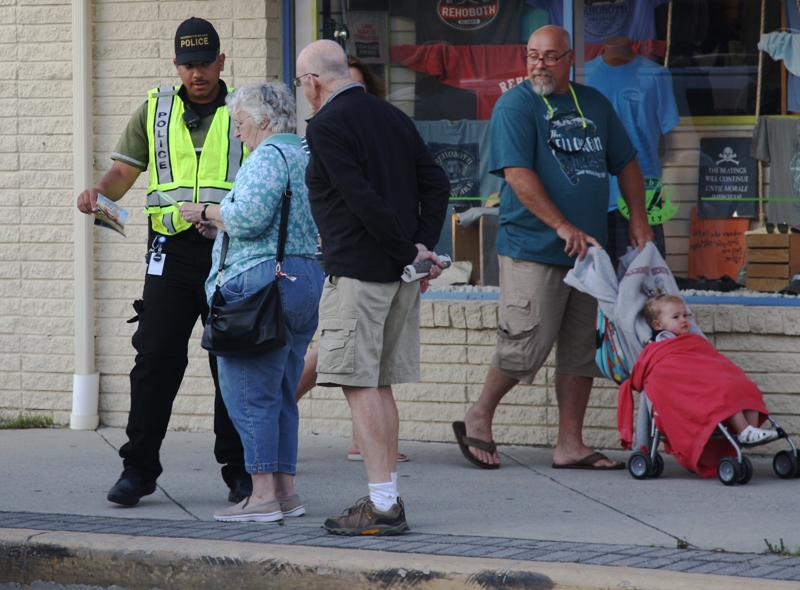Highway Safety Programs in Jeopardy Starting June 1
Police agencies throughout Delaware that have relied on federal funds to enforce important highway safety initiatives will likely find themselves without funding on June 1. This comes just as the programs are in demand with increased summer activity.

“It is with extreme disappointment that I must notify you that we are suspending project agreements effective June 1st, 2022 for law enforcement agencies receiving a flat rate of $65.00 per hour for the Delaware Office of Highway Safety (OHS) overtime traffic safety enforcement pay rate,” Kimberly Chesser, OHS director, wrote in this memo which was sent to police agencies last Tuesday.
The federally-funded OHS programs have been staples of Delaware highway safety for years and cover everything from impaired driving to pedestrian safety and seat-belt enforcement initiatives and are enforced by various Delaware municipal police typically with overtime pay. During previous summers, Rehoboth Beach police have participated in various OHS programs including seat-belt and distracted-driver checks like this one during Memorial Day Weekend on Rehoboth Avenue in 2019.

“As you are aware,” Chesser’s memo explains, “our funding for the OHS overtime traffic safety enforcement comes from the National Highway Traffic Safety Administration (NHTSA). OHS was advised notified [sic] by NHTSA at the end of last week that there are concerns that this practice does not comply with the Federal Super Circular, and we must stop this practice effective June 1st.”
The $65 flat-rate hourly wage has been in place for several years, but the memo indicates that “there is new attention on this and OHS was advised by NHTSA that they need to take swift action and cannot allow OHS to continue with this practice. Please know that we are diligently working through this issue to obtain clear guidance on how to proceed and want to resolve this as quickly as possible.”
So what exactly is the problem?
Both Chesser and Arshon Howard, Department of Safety and Homeland Security spokesman, provided various statements that did not specifically answer the question.
“It is too early to know the full impact of this directive,” Chesser wrote in an email response. “We are conducting an internal review and working closely with NHTSA. We are hopeful that we can resolve this in short order so that our summer programs will not be adversely affected. The Office of Highway Safety handles a variety of programming and this matter does not affect every project or police agency in the state. We are committed to our mission to save lives by preventing injuries and fatalities due to traffic crashes and are working towards a swift resolution,” she added.
Howard stated that “This matter only impacts overtime enforcement to law enforcement agencies. While overtime enforcement is an important part [of] our highway safety program, it is only a small part of our overall budget (approximately 15%).”
But that 15 percent of the overall OHS budget has been important to funding municipal police officers working these highway safety programs. Like most agencies throughout Delaware, Lt. Jaime Riddle, Rehoboth Beach police spokesman, says they partner with OHS to implement targeted enforcement in association with various public safety campaigns determined through national and statewide research.
“The suspension of OHS initiatives is very unfortunate for not only for the citizens and visitors of Rehoboth Beach,” Lt. Riddle stated, “but for the entire State of Delaware. Over the years I am certain that the efforts of OHS have saved numerous lives and will continue to do so in the future; however, currently without the funding if the need arises for targeted enforcement, it will have to be researched and funded by the city.” RBPD officers frequently worked these OHS pedestrian safety programs in previous summers, among the other OHS initiatives.

Sgt. Clifford Dempsey, Dewey Beach police spokesman, stressed the importance of these highway safety funds especially in a town that has a major highway passing through its center with as many as 40,000 visitors a weekend. Using these funds, he pointed out, officers are able to specifically enforce traffic safety and help prevent a major catastrophe. They cannot provide the same level of enforcement without the state funding and may have to explore using the town’s general fund for such highway safety enforcement, he said.
A spokeswoman from NHTSA, the federal agency that oversees the grants, would only say in an email on Friday that “NHTSA values our partnership with States and the important role they have in advancing traffic safety, including their engagement with law enforcement. The Agency is working with the Delaware Office of Traffic Safety and we hope to resolve any issues as quickly as possible, but have not set a timeline.”
When asked if the Maryland Highway Safety Office was experiencing similar funding problems, Anna Levendusky, MHSO spokeswoman, pointed out that “Consistent with guidance from the National Highway Traffic Safety Administration, MDOT MVA’s Highway Safety Office pays law enforcement agencies that are grantees the overtime rate of their agency – they are not paid the same flat rate across the State.”
The Delaware OHS overtime rate has been fixed at $65 per hour. But Sgt. Dempsey pointed out that DBPD officers who work these patrols are paid the full $65 hourly rate.


